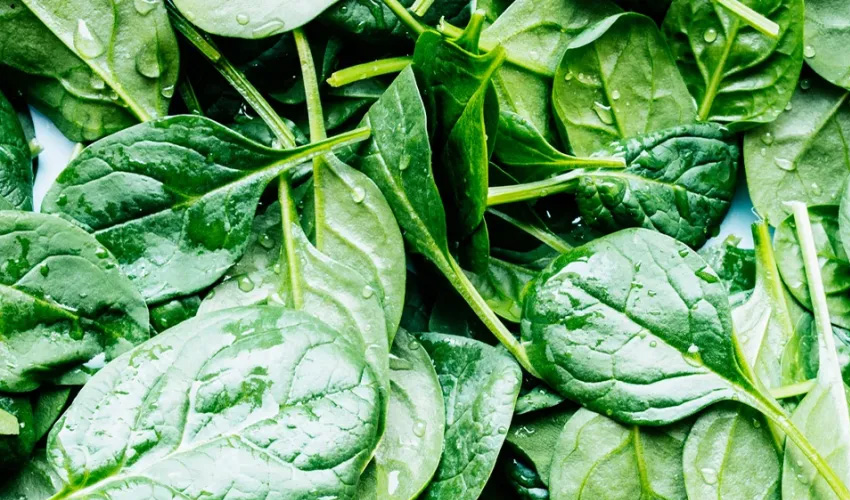Spinach is a distinguished food choice during winter, rich in vitamins, minerals, and antioxidants that enhance immunity, promote heart health, support bone strength, and boost skin hydration.
Its low calorie content and high nutritional value make it ideal for managing weight and energy.
– Supporting Bone Health –
During winter, Vitamin D levels drop, impacting bone health. Spinach provides a good source of Vitamin K, essential for bone metabolism. A recent study found that individuals consuming higher amounts of Vitamin K had stronger bones and lower fracture risks. Consuming spinach alongside Vitamin D-rich foods like fortified dairy can further support bone density in winter.
– Improving Skin Hydration –
Cold winter air can reduce skin moisture, leading to dryness and irritation. Spinach's antioxidants, including Vitamin E, Beta Carotene, and Vitamin C, help protect and hydrate the skin. Additionally, Vitamin A in spinach aids in skin cell regeneration and repair, contributing to a rejuvenated appearance.
– Increasing Energy and Reducing Fatigue –
Winter often brings fatigue, partly due to lower sunlight and physical activity. Spinach, a natural source of iron and magnesium, enhances energy levels and reduces fatigue. The iron in spinach helps transport oxygen to muscles and cells, crucial for maintaining energy throughout the day. A study published in *The Journal of Nutrition* revealed that individuals who included more iron-rich vegetables like spinach in their diets experienced less fatigue and improved endurance, offering a natural remedy for winter sluggishness.
– Weight Management –
For those managing their weight during the winter months, spinach is a valuable addition to the diet. Its fibre content promotes satiety and regulates digestion, helping prevent overeating and supporting weight control.


























